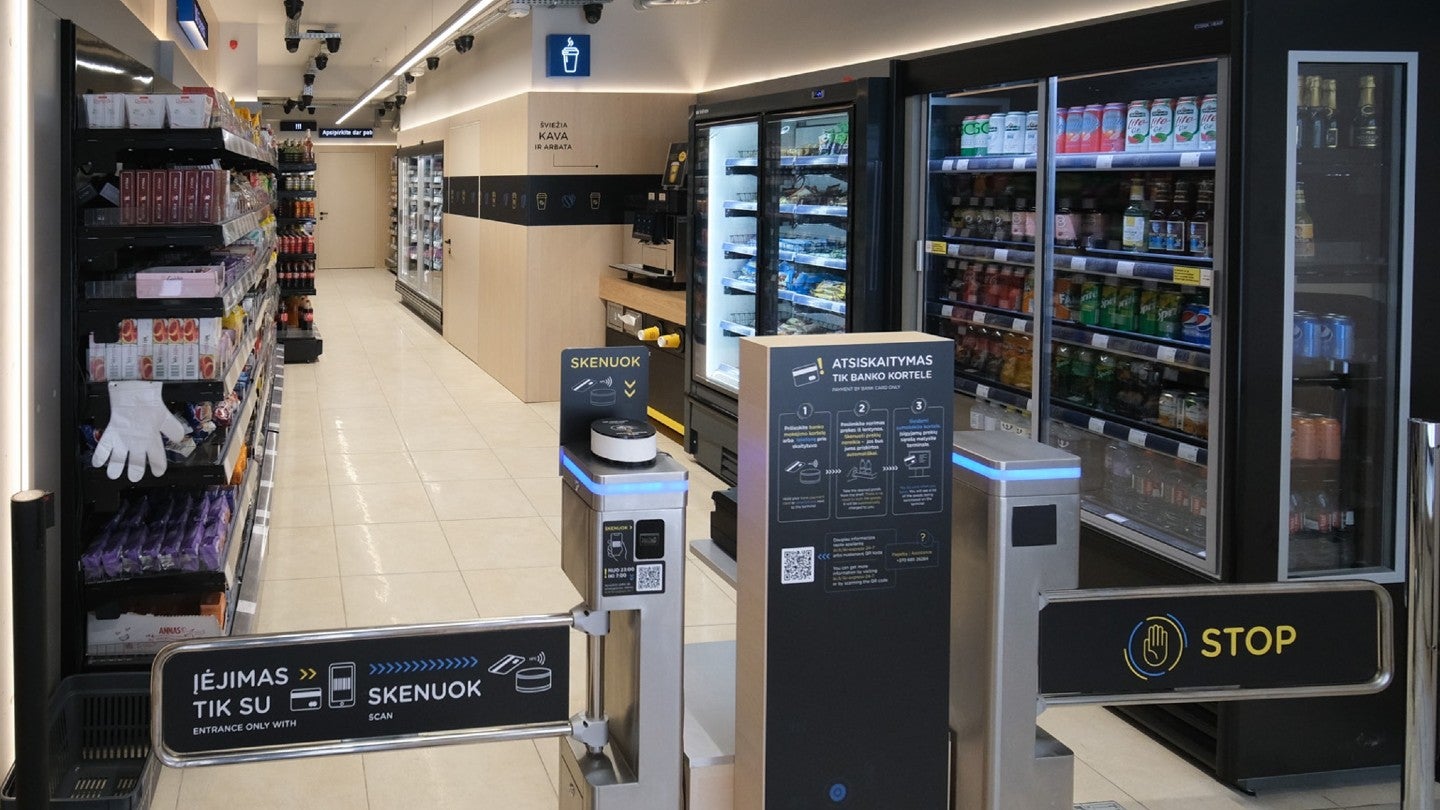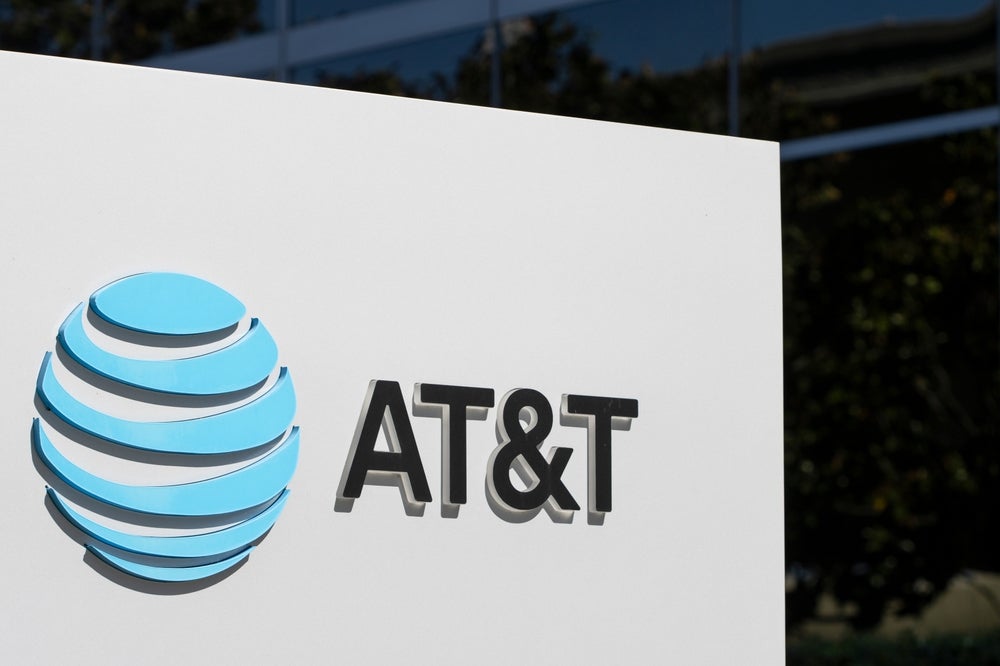
Autonomous stores made possible by cameras, sensors and artificial intelligence (AI) have been pitched as something that will revolutionise the future of retail, with the potential to reduce theft, reduce personnel numbers and offer real-time advertising.
Software company Pixevia has helped five branches of Lithuanian supermarket chain IKI transform into autonomous stores in Vilnius.
Speaking to Verdict in Vilnius, during last week’s Enterprise AI & Tech conference, Pixevia’s CEO Mindaugas Eglinskas outlined how its solution differs from that of Amazon Go, its upcoming features and its expansion plans.
Automated shopping
When customers enter an automated IKI store, they enter their bank cards at the gates, collect what they need and then pay at a self-checkout terminal with no need to scan any items.
Pixevia’s product uses a variety of sensors and cameras to evaluate a customer’s shopping basket as they take items off shelves, and it generates a total price as the customer approaches the checkout machines. In the future, Eglinskas explains, the product will have the capability to generate advertisements in real-time for people as they search for a product and improve the assortment, bringing e-commerce into physical stores.
Of the challenges of scaling up the solution and building the AI, Eglinskas says that the company had to hone the accuracy and reliability of the technology while working to enhance the customer experience by making it easier for customers to enter the store and understand the system.
How well do you really know your competitors?
Access the most comprehensive Company Profiles on the market, powered by GlobalData. Save hours of research. Gain competitive edge.

Thank you!
Your download email will arrive shortly
Not ready to buy yet? Download a free sample
We are confident about the unique quality of our Company Profiles. However, we want you to make the most beneficial decision for your business, so we offer a free sample that you can download by submitting the below form
By GlobalDataPixevia also facilitates group shopping functionalities, allowing groups to pay together or individually. Eglinskas explains that, for each store they work to automate, Pixevia works closely with the retailer to optimise the layout and the number of gates depending on the traffic and size.
Differentiation from competitors
Eglinskas highlights two key ways that Pixevia’s solution differs from Amazon Go’s which are the quick entry experience and the customer knowing the total upon exiting the store.
“In most Amazon stores you have to enter with an Amazon app,” says Eglinskas. “Most customers have to download an app and put in their card details and address. When you are just looking to buy a sandwich customers will most likely pick another store than downloading the app and entering all the details. Normally people would like to enter a store in a couple of seconds.”
“Secondly, in Amazon stores, you will get the receipt in minutes, sometimes in hours. People especially right now are a bit more price-cautious and budget-conscious, they would like to know how much they will have to pay.”
“In our stores, you can see in real-time how much you are paying rather than leaving the store and being charged the amount later.“
Eglinkas emphasises that focusing on the consumer experience helps to boost the number of transactions in a store.
Preventing theft
Eglinskas believes that a key attraction of autonomous stores for retailers is how they can prevent theft, asserting: “It’s almost impossible to steal unnoticed from such a store.”
In the event of a coordinated theft attack, with someone holding open the doors of a store while another quickly grabs a large number of items, he says the system automatically reacts and sends alerts to the security company, informing security personnel to turn on sound alarms.
“The system can react faster than humans in these circumstances,” he adds.
In addition, Eglinskas says that, while there is still currently a need for security personnel to check the system is correct, there is the possibility for an alarm system to be fully automated in the future.
Reducing costs
From a workforce perspective, Eglinskas explains that automated stores are a lot more efficient, offer substantial cost reductions and allow stores to operate 24/7 more easily.
“For example, for the stores in Vilnius, four of them have just one member of staff just to replenish stock and clean the store and coffee machines,” he says. “The other stores have staff in the offseason, most likely 70% of the time, but just one person as opposed to two people before.”
The pricing of Pixevia’s technology depends on how active a store is and its size. However, Eglinskas acknowledges: “In retail, cheaper is always better”, explaining that the firm is trying to reduce installation costs. He notes that some costs will come down in the normal way as technology becomes cheaper incrementally but that other aspects will come from Pixevia’s side, with servers being able to process more cameras or through buying sensors at a lower price.
Expansion and future collaboration
From their first store in 2019, the firm added four more stores in 2023 and now plans to double or triple the number of stores this year across Vilnius, the US, Germany, Austria and Switzerland, with potential openings also slated for the Netherlands and UK.
Eglinskas notes that with the deployment of Amazon Go stores in the UK and the immaturity of the technology, the UK is stepping back from the technology, so it is a difficult time to enter the market,. he believes that in a couple of years, though, with what he feels is the more customer-orientated technology Pixevia offers, it will be possible to enter.
Although Pixevia is currently working with IKI, which is part of the German retail co-operative REWE Group, Eglinskas explains that the firm is approaching all big retailers in Europe, including Sainsbury’s. Nonetheless, he acknowledges that, at present: “REWE Group is a very important partner for us.”








